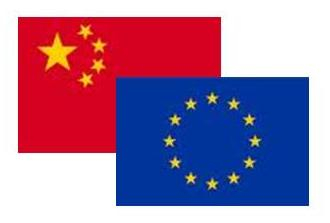
Practical information
The Centre Asie, Ifri invites you to a conference organized in two sessions on 21 June 2010.
CHINA AND EUROPE IN GLOBAL GOVERNANCE
Session 1: Political Aspects of Global Governance
9h00 - 10h30
(session in French)
with
CAI Fangbo
former Ambassador of the People's Republic of China to France
and member of the Consultative Committee on Foreign Policy at the Ministry of Foreign Affairs in China
and
GUANG Chengyuan
former Ambassador of the People's Republic of China to the European Union and the Kingdom of Belgium
and member of the Consultative Committee on Foreign Policy at the Ministry of Foreign Affairs in China
discussant:
Antoine Sautenet
Associated Researcher, Centre Asie Ifri
Session 2: Economic Aspects of Global Governance
10h45 - 12h00
(session in English)
with
YU Yongding
Member of the Chinese Academy of Social Sciences
and former Member of the Monetary Committee of the People's Bank of China
discussant:
Françoise Nicolas
Director of the Centre Asie Ifri
Both sessions will be chaired by Françoise Nicolas, Director of the Centre Asie Ifri
Other events

From Ambition to Action: Exploring Technological Partnerships with India
The 16th EU-India Summit, held on January 27th in New Delhi with European leaders António Costa, Ursula von der Leyen, and Prime Minister Narendra Modi, marks a significant milestone in deepening EU-India relations. At the same time, official bilateral visits from EU member states are on the rise, including that of the French President, who visited India in February to participate in the Artificial Intelligence Summit. As India asserts its technological ambitions and seeks to reduce its dependence on China, Europe is stepping up its efforts to diversify its strategic partnerships.

The Enlargement of the European Union: A Strategic Choice? France, the Western Balkans and the EU in an Uncertain Geopolitical Context
Russia’s war against Ukraine has brought the enlargement of the European Union back to the centre of European strategic debates. In this context, the Western Balkans have regained heightened visibility in discussions on the continent’s security, at a time when the international environment is marked by a growing number of destabilising factors.






